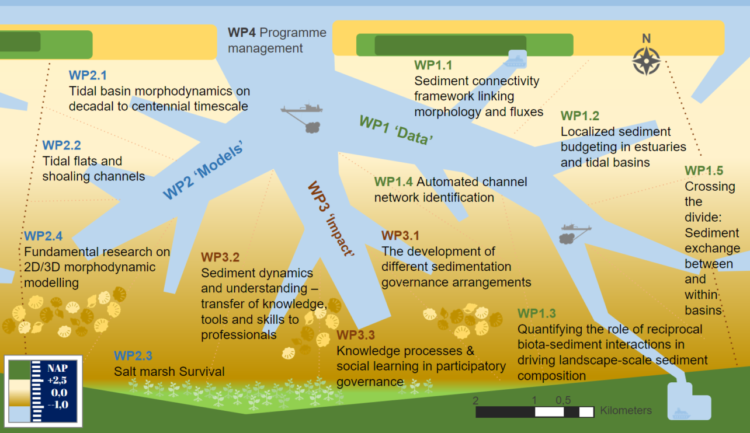Work Package 3 “Impact”
Sediment dynamics & management: perceptions, governance and applications
It is widely appreciated that sediment management will be an important topic for the future given, for example, the globally recognized scarcity of sand resources in the world. UNEP presents 10 recommendations to avert a crisis. These recommendations offer guidance on how sand resources should be governed and managed in a responsible and sustainable manner, but need to be developed for specific systems. Diverse stakeholders (business, citizens, policymakers and scientists amongst others) each have local experiences and specific framings of issues related to sediment management, which sometimes leads to conflict, controversy or ignorance of far-field effects on other parts of the system. These frames emerge from, and are linked to, their diverse understandings of, and perspectives on, sediment interactions. Their sometimes misaligned engagements with system dynamics inhibit consensus on interventions for climate change adaptation. Merely making new data and tools available is therefore not going to have impact. First, we need to know how the diverse stakeholder views differ and can be co-aligned. With this knowledge, the necessary outcomes of the program can be co-created. Here, the expert users play a double role: we will co-create tools and data together for their use, but we will also co-create the system insights and concepts with non-expert stakeholders which they, the experts, will continue to use with the non-experts after the WadSED program.
Projects in Work Package 3 “Impact”
3.1 The development of different sediment governance arrangements
3.2 Sediment dynamics and understanding – transfer of knowledge, tools and skills to professionals
3.3 Knowledge processes and social learning in participatory governance
Discover more in other work packages!

